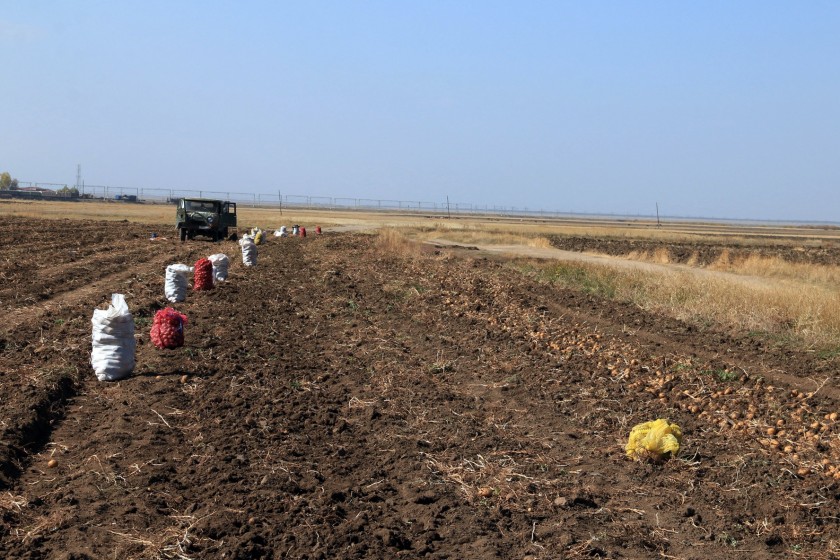
Harvesting Potatoes on Lake Sevan’s Southern Shore: Many Prefer Working the Land Than Leaving for Russia
Marine Martirosyan
From afar, the white sacks of potatoes, lined up in rows, resemble beads.
Karineh Gasparyan, decked out in her flowery head scarf, approaches. “Hello, have you lost something?”
“We’re reporters,” we respond. “No problem,” says Karineh. “We have nothing to fear.”
“Why should you be afraid?” we ask.

“We’re neither politicians or doing anything secret. We’re just working the land. Our consciences are clear, and our heads bowed. I don’t care who comes, the KGB or the cops. We have nothing to be afraid of,” says the 62-year-old woman, laughing. Karineh then asks if our coverage will appear on TV or in a newspaper.
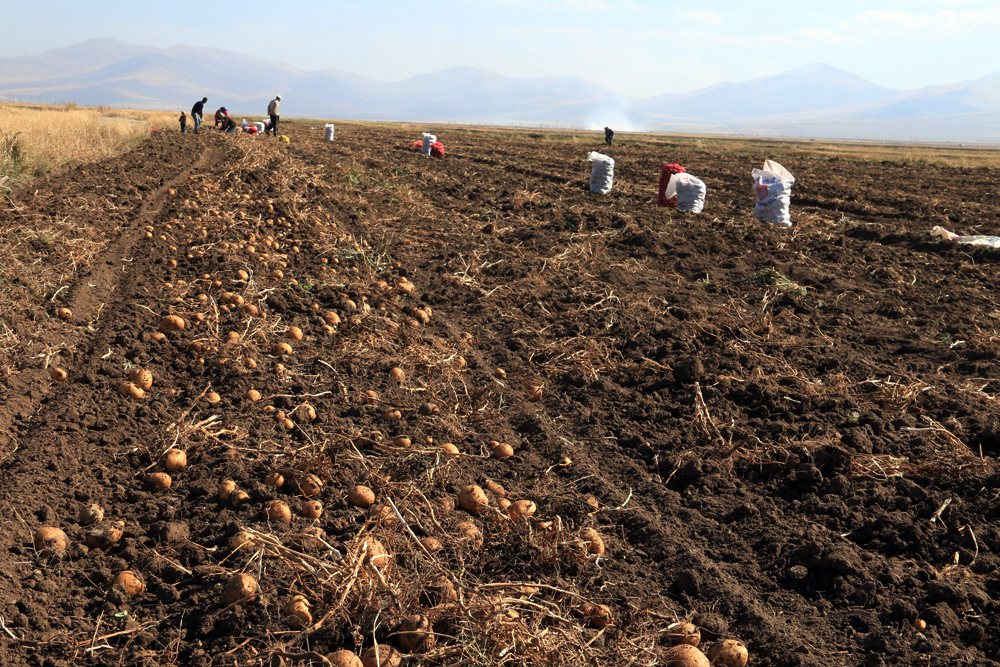
Karineh and the others harvesting the potato crop live in the village of Lousakunq but have leased land here, in Mets Masrik (Gegharkunik Province). They pay AMD 150,000 per year. She says the land in their village isn’t as fertile and it’s hard to irrigate.
32-year-old Hamlet Gasparyan, Karineh’s son, ticks off the expenses to grow potatoes – there’s the 60,000 drams for the tractor, the fertilizer, seeds and worker wages.
While this year’s crop isn’t as abundant as last year’s, Hamlet doesn’t complain. It’s better to work, he says, and make an honest living, rather than not work and whine all day.
Yesterday, they sold their potatoes for 130 drams a kilo.
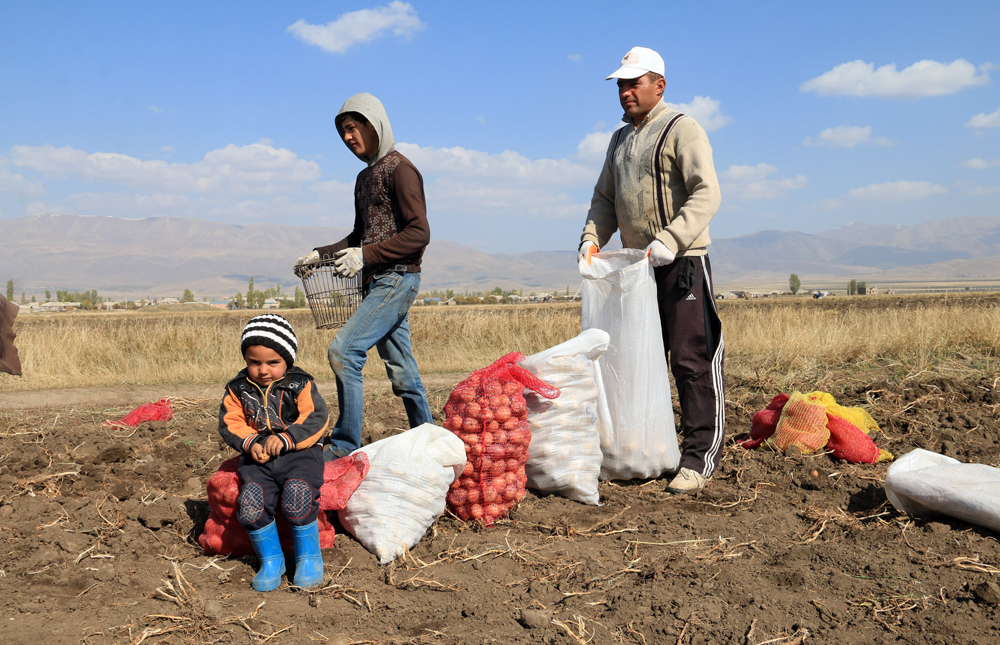
3-year-old Rafayel, one of Hamlet’s two sons, is sitting on a full sack of potatoes. I ask Hamlet if the young boy helps them. Hamlet laughs, saying he just wants Rafayel to stay out of trouble. They bring the boy to the field because he likes to sit and watch the adults work.

Hamlet tells me that each field has its own character, based on location, water, etc., and that this field is quite ornery, and that they won’t be coming back next year.

Everyone pitches in at harvest time, even 75-year-old Azatouhie Lisanyan. She says that the owner of the field didn't harvest the potatoes because most of the crop has gone rotten this year.
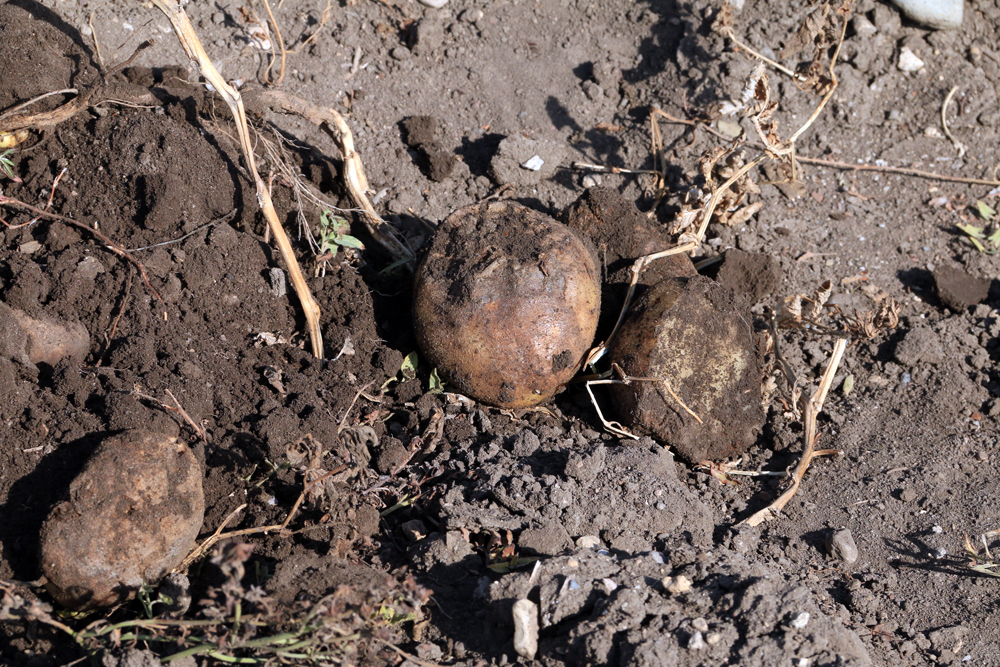
Mrs. Lisanyan chore is to separate the good tubers from the rotten ones. She’ll sell what she can to buy firewood for the winter.
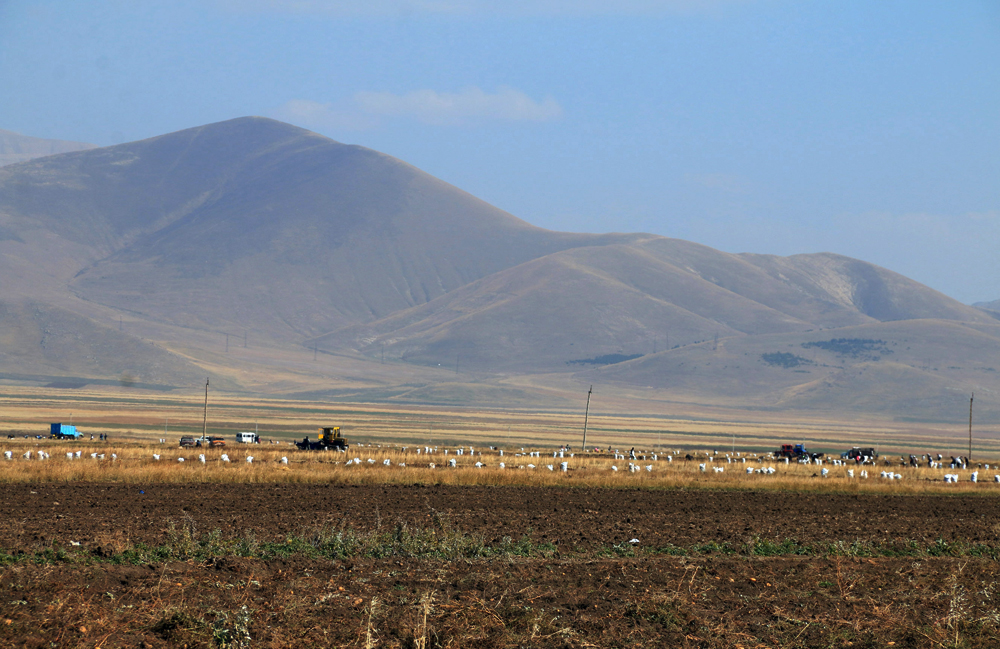
“My dear, what else can I do? My husband died last year, and we had no children. I have to work to live,” she says.
Azatouhie says that years ago, these fields were planted with tobacco. She and the family would participate in the harvest.
Leaning on her shovel, she sighs and says things were better back then; life was more enjoyable, and people were more neighborly.

Mariam Khloyan, a resident of Mets Masrik, shouts out while approaching us. She stands next to her friend Nelly, from Yerevan.
“Nelly’s my sister-in-law. I phone her every morning and ask how she’s doing. Today, she said her head was spinning and her pressure was high. She’s been picking potatoes for hours,” says Mariam.
Nelly nods her head in agreement, saying that, for some unknown reason, working in the field makes her feel better.
“Dear girl, let me fill up a pail of potatoes for you to take home,” says Azatouhie. We politely refuse, but the woman insists.
To make us feel less guilty, she tells us to pick up a sack and place it yonder. “You’ve come all the way to the village. Might as well help out,” she exclaims.
The potato harvest is in full swing in the villages along the southern shore of Lake Sevan. They’re also picking potatoes in the village of Vardenik near Martouni town.

Samvel has come to pick potatoes after a morning of fishing. When I ask what’s easier, fishing or potato picking, he laughs and says the former.
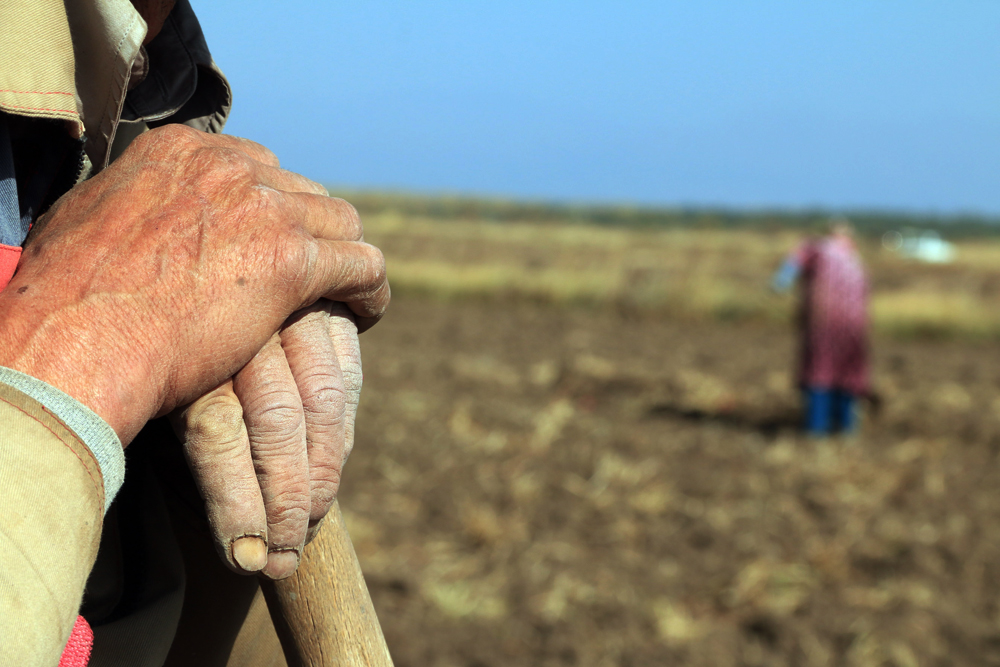
“We just got here, to work on the field of this farmer. I get one sack of seed potato per day instead of being paid. One sack weighs just over fifty kilos, about 11,000 drams. If it’s a good field, they’ll give you 6,000 in cash. You can fill three sacks of tubers a day,” says Vardenik resident Mekhak Abroyan.
He’s referring to the process locally called pletch – rooting around for tubers after the main harvesting has finished.
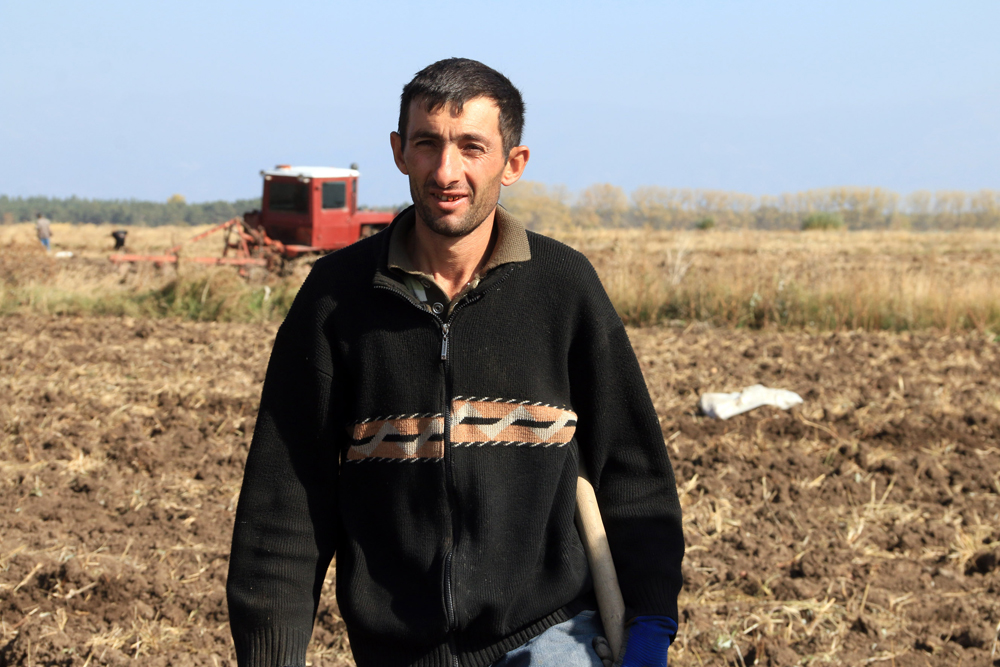
Mekhak and his friends claim that the best tasting spuds are grown in Martouni. The villagers disagree. There’s even a ditty about how delicious village-grown potatoes are. It goes – “Village spuds are more expensive than gold…”
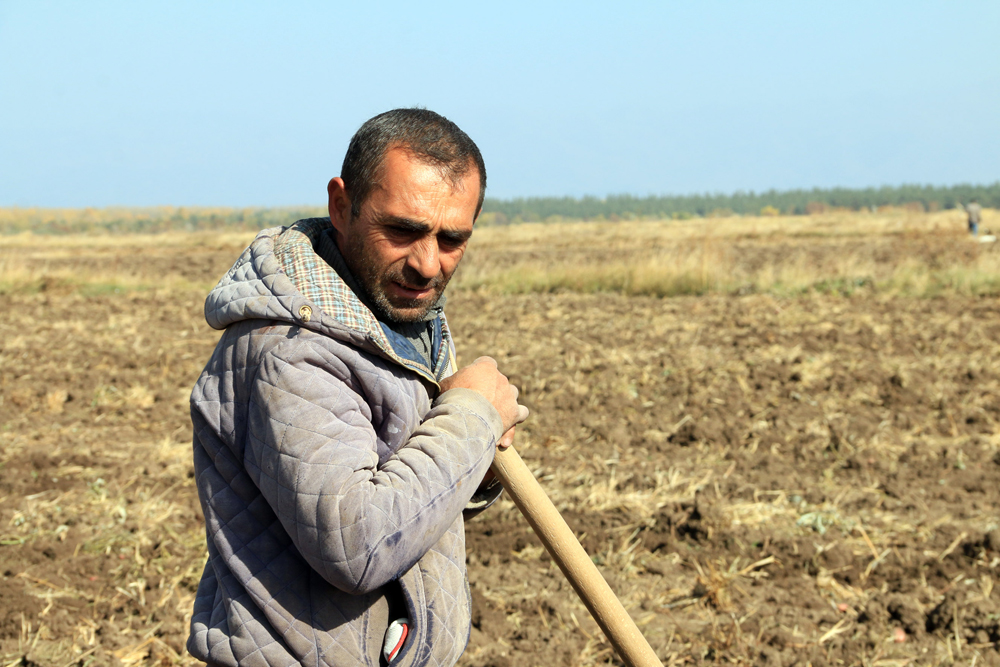
Manvel, Samvel’s brother, is in no mood for singing. There’s work to be done, he says, and lights a cigarette with his calloused hands.
Many from Vardenik have left to find seasonal work in Russia, says Manvel. Many bring back $15,000 per year.
“They wouldn’t go if there was work here,” says Manvel, adding that he and the others would never leave for Russia.
“We’ll find something to do in the village. But we’ll never work for someone else in Russia.”
Photos: Hakob Poghosyan
 Videos
Videos Photos
Photos
Write a comment